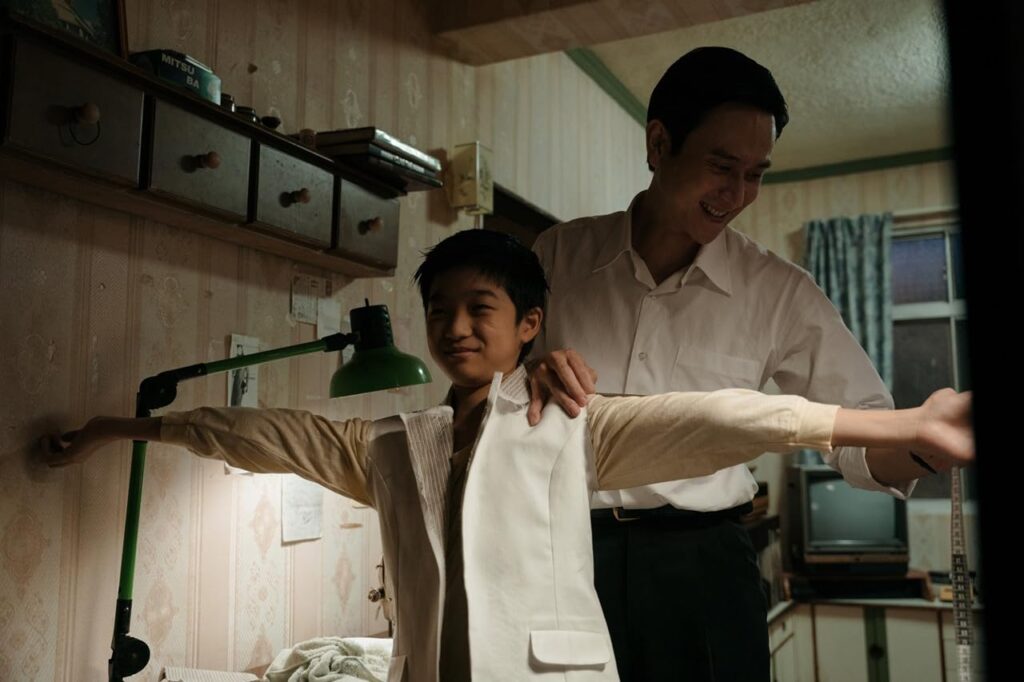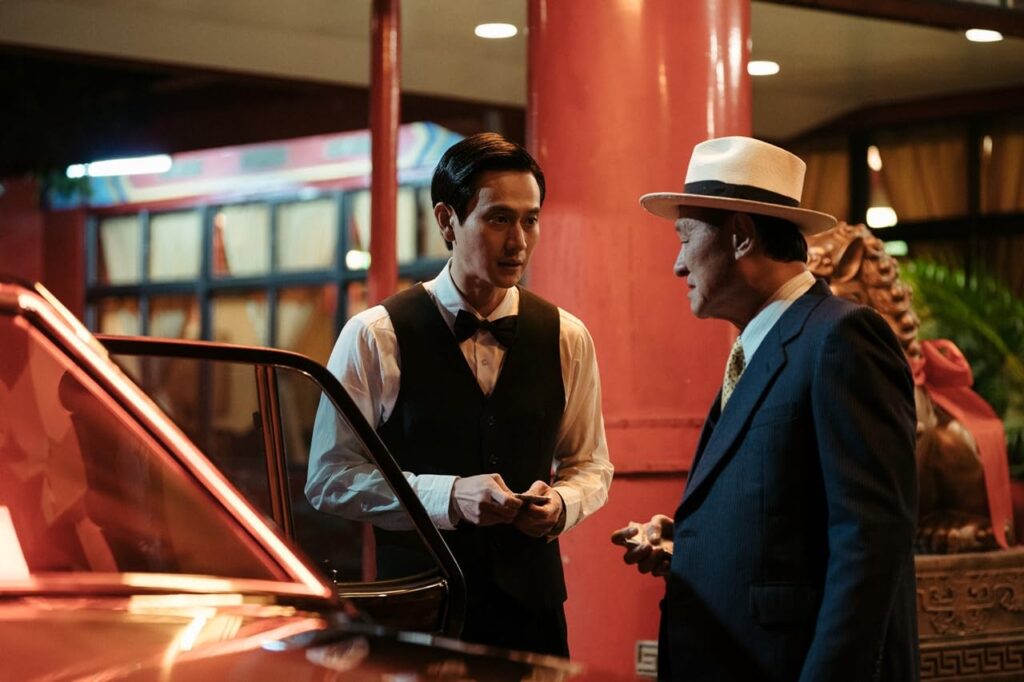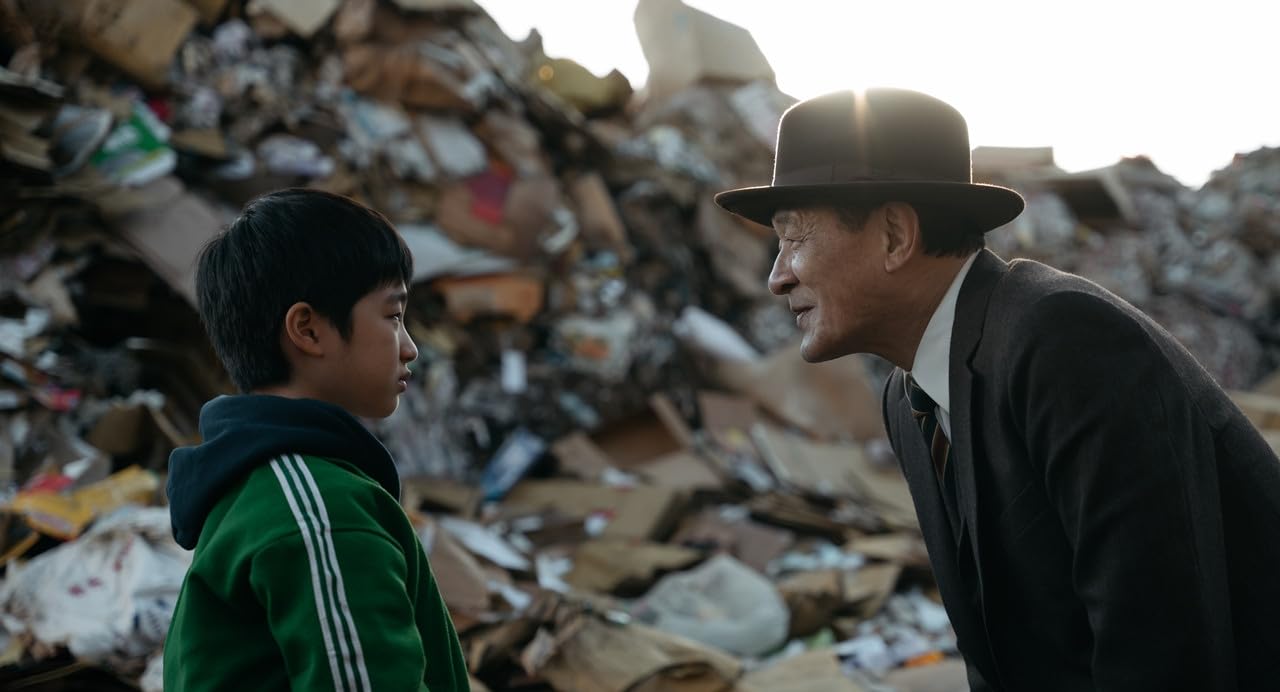by Brian Hioe
語言:
English
Photo Courtesy of Sky Films Entertainment Co., Ltd.
This is a No Man is an Island film review written in collaboration with Cinema Escapist. Keep an eye out for more!
OLD FOX IS a masterful film that rarely misses a beat. On top of its cast’s strong acting and an evocative depiction of 1980s Taiwan, Old Fox shines for its depiction of socioeconomic inequality through the eyes of a child.
In particular, Old Fox follows Liao Jie, the 11-year-old son of waiter Liao Tai-lai. Liao Jie has grown up in a single-parent household, raised by his father. The Liaos are poor, having to skimp on everything from clothes to gas. Despite this, Liao Tai-lai hopes to save up for a home—and to potentially open a salon, to fulfill his late wife’s dream. Liao Tai-lai is an honest and upright man, perhaps to a fault, and seeks to raise his son similarly.

Photo courtesy of Sky Films Entertainment Co., Ltd.
The Liaos’ lives change, however, after Liao Jie befriends Boss Xie. Nicknamed “Old Fox” for his cunning, Xie is their landlord. Initially, Liao Jie hopes to talk Xie into selling them the downstairs apartment, which the current residents plan to move out of, so that his father can open a salon.
But Xie proves something of a corrupting influence on the child. Seeing himself in the boy due to having also grown up poor, Xie seeks to tutor Liao Jie along the lines of his give-and-take mindset. Xie calls on Liao Jie to befriend the strong, while arguing that the overly empathetic—such as Liao’s father—are doomed to suffering.
Though the underpinnings of its plot tend to be moralistic, Old Fox’s storytelling sets the movie apart. No element in the film is unnecessary; each adds to the plot as a whole, as well as fleshes out its wonderfully realized characters. A sequence near the end of the movie’s second act juxtaposing a night in the lives of three couples is especially strong.
Likewise, the film effortlessly conjures up the flavor and ambiance of 1980s Taiwan—a time in which Taiwan’s economy was growing, but stock market speculation also ran rampant—without leaning into being a period piece. This is especially true of Old Fox’s depiction of poverty. The movie neither makes the lives of its working-class characters exaggeratedly bleak nor romanticizes poverty.

Photo courtesy of Sky Films Entertainment Co., Ltd.
To this extent, Old Fox boasts exemplary acting for all of its major characters. Liao Tai-lai is arguably the least interesting character, as a paragon of morality, but Liu Kuan-ting still vests him with depth. Supporting characters—like Eugenie Liu’s role as Xie’s secretary Lin Chen-Chen, and Mugi Kadowaki’s role as Liao’s old flame Yang Jun-Mei—are also well-acted, even if the movie only gives female characters auxiliary roles, and naturalizes male violence against women.
However, it is Bai Run-yin’s turn as Liao Jie and Akio Chen’s performance as Boss Xie that are the movie’s standouts. Bai’s depiction of Liao Jie is multifaceted, illustrating that while Liao Jie is still a child, he is gradually becoming conscious of his own capacities for good and evil, as well as coming to understand the inequalities of his world. And, as the eponymous character of the movie, Chen’s performance as Xie is truly masterful. Chen manages to capture the vicissitudes of Boss Xie, as a character who can simultaneously be kind at times yet capable of merciless cruel actions. Indeed, Chen’s delivery is so nuanced that he sometimes manages to show both sides of his character in just a single interaction.
Apart from the minor stumble of a coda that feels unnecessary and distracting, Old Fox is a remarkable film. It is not surprising that Old Fox was one of Taiwan’s standout movies in 2023, then.



